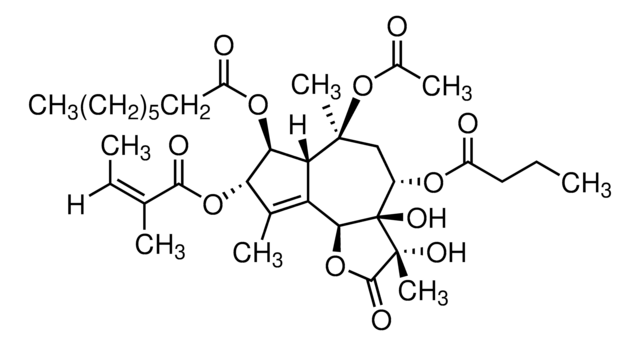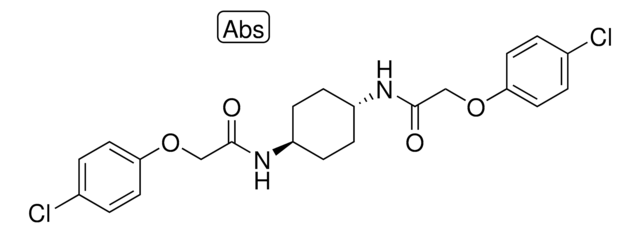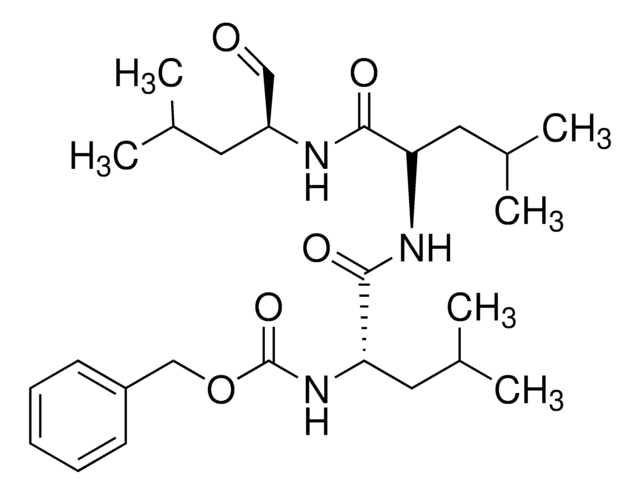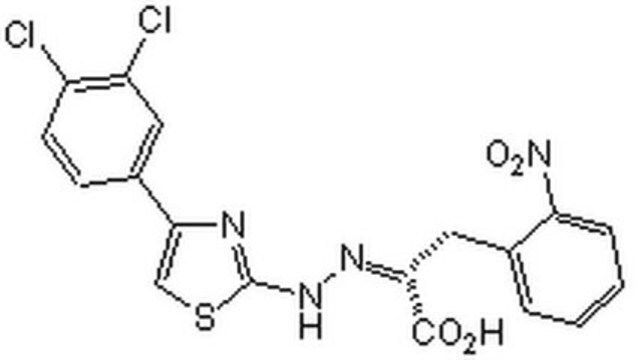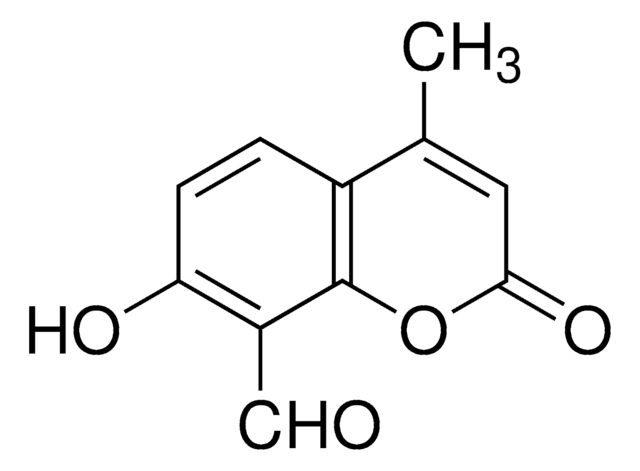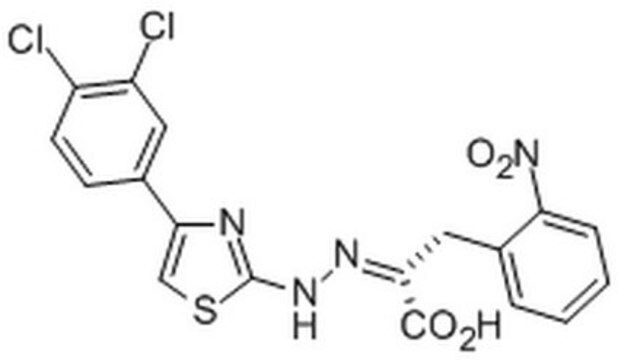324879
CCT020312
≥98% (HPLC), solid, EIF2AK3 activator, Calbiochem®
Synonym(s):
EIF2AK3 Activator, CCT020312, 6-Bromo-3-[5-(4-bromo-phenyl)-1-(3-diethylamino-propionyl)-4,5-dihydro-1H-pyrazol-3-yl]-4-phenyl-1H-quinolin-2-one, PERK activator, CCT020312
About This Item
Recommended Products
product name
EIF2AK3 Activator, CCT020312, The EIF2AK3 Activator, CCT020312 modulates the biological activity of EIF2AK3.
Quality Level
Assay
≥98% (HPLC)
form
solid
manufacturer/tradename
Calbiochem®
storage condition
OK to freeze
protect from light
color
yellow-white
solubility
DMSO: 50 mg/mL
shipped in
ambient
storage temp.
−20°C
SMILES string
O=C1C(C2=NN(C(CCN(CC)CC)=O)C(C3=CC=C(Br)C=C3)C2)=C(C4=CC=CC=C4)C5=CC(Br)=CC=C5N1
General description
Packaging
Warning
Reconstitution
Other Notes
Legal Information
Storage Class Code
11 - Combustible Solids
WGK
WGK 2
Flash Point(F)
Not applicable
Flash Point(C)
Not applicable
Regulatory Listings
Regulatory Listings are mainly provided for chemical products. Only limited information can be provided here for non-chemical products. No entry means none of the components are listed. It is the user’s obligation to ensure the safe and legal use of the product.
JAN Code
324879-5MG:
324879-MG:
Certificates of Analysis (COA)
Search for Certificates of Analysis (COA) by entering the products Lot/Batch Number. Lot and Batch Numbers can be found on a product’s label following the words ‘Lot’ or ‘Batch’.
Already Own This Product?
Find documentation for the products that you have recently purchased in the Document Library.
Our team of scientists has experience in all areas of research including Life Science, Material Science, Chemical Synthesis, Chromatography, Analytical and many others.
Contact Technical Service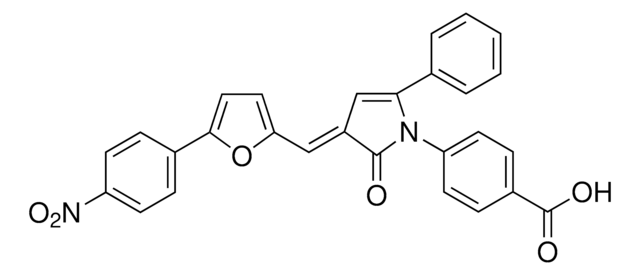
![PERK Inhibitor I, GSK2606414 GSK2606414 is a cell-permeable, highly potent inhibitor of EIF2AK3/PERK (IC₅₀ = 0.4 nM; [ATP] = 5 µM). Targets PERK in its inactive DFG conformation at the ATP-binding region.](/deepweb/assets/sigmaaldrich/product/structures/180/559/efa716dc-d5fe-4339-a6f0-0103084fc04a/640/efa716dc-d5fe-4339-a6f0-0103084fc04a.png)
